December 30, 2019 at 6:10 pm
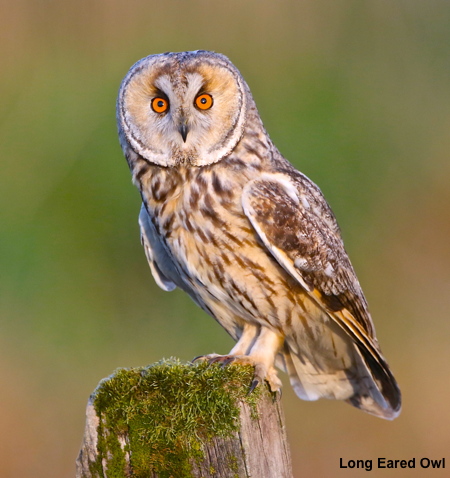 At the beginning of the year my photographic targets for the year included hunting Long Eared Owl and young Kingfishers perched on a branch after fledging. Up to six hours a day were spent, under cover, in June and July to capture the Long Eared Owl and I was almost successful with the young Kingfishers. My dream of five young Kingfishers on the same branch was spoiled when two of them perched nearby so I had to make do with three on the branch and two elsewhere as shown in this weeks gallery. My work on Hen Harriers on Islay continued and after 43 years is now nearing completion!
At the beginning of the year my photographic targets for the year included hunting Long Eared Owl and young Kingfishers perched on a branch after fledging. Up to six hours a day were spent, under cover, in June and July to capture the Long Eared Owl and I was almost successful with the young Kingfishers. My dream of five young Kingfishers on the same branch was spoiled when two of them perched nearby so I had to make do with three on the branch and two elsewhere as shown in this weeks gallery. My work on Hen Harriers on Islay continued and after 43 years is now nearing completion!
The end of this year is quite special in that it is fifty years since I started to film wildlife. Initially it was a hobby but for 22 years I was a full time professional wildlife film-maker travelling the world from the Seychelles to Spitsbergen to make films. It was a dream come true and I can still remember the day I had to pinch myself to believe that here I was, in my hide, on the Arctic tundra of Alaska waiting for a Snowy Owl to return to its nest!! – a long time since, as a ten year old, I won the Nature prize at a secondary Modern school in Bury! Click here
December 21, 2019 at 9:16 pm
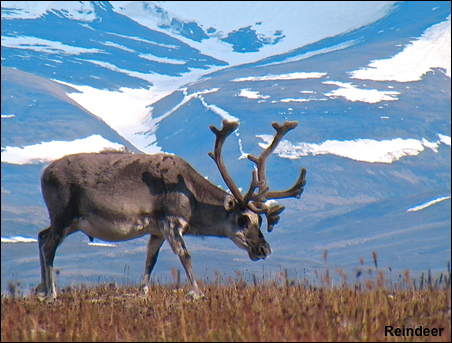 This week’s photo was taken through my video camera in Svalbard ten years ago. The Svalbard reindeer is smaller than the Lapland reindeer but its antlers are much more impressive. On my last ever visit to Svalbard, three years ago, I had the unique opportunity to photograph a female Polar Bear with three cubs. This has hardly ever been seen before and only myself and a fellow traveller were in the right position at the rear of the boat to obtain any photos.
This week’s photo was taken through my video camera in Svalbard ten years ago. The Svalbard reindeer is smaller than the Lapland reindeer but its antlers are much more impressive. On my last ever visit to Svalbard, three years ago, I had the unique opportunity to photograph a female Polar Bear with three cubs. This has hardly ever been seen before and only myself and a fellow traveller were in the right position at the rear of the boat to obtain any photos.
With Christmas Greetings to all my readers. click here
December 15, 2019 at 6:26 pm
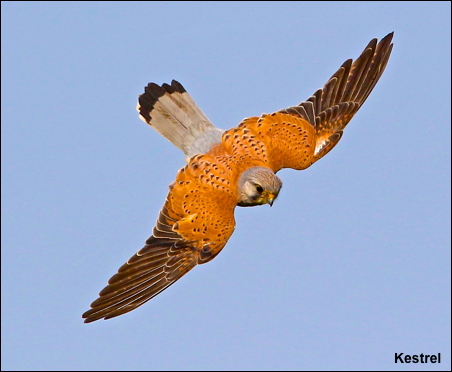 The Kestrel might be our commonest bird of prey but you can never go out and plan to photograph one. This summer I spent some time watching a well-marked male as he looked for prey on the ground from some telegraph wires. I had to try to anticipate the split second he left the wires and more often than not failed to capture the action. However, with luck I did succeed occasionally as can be seen in this weeks blog photo. Some immature birds are shown in the gallery. click here
The Kestrel might be our commonest bird of prey but you can never go out and plan to photograph one. This summer I spent some time watching a well-marked male as he looked for prey on the ground from some telegraph wires. I had to try to anticipate the split second he left the wires and more often than not failed to capture the action. However, with luck I did succeed occasionally as can be seen in this weeks blog photo. Some immature birds are shown in the gallery. click here
December 8, 2019 at 7:15 pm
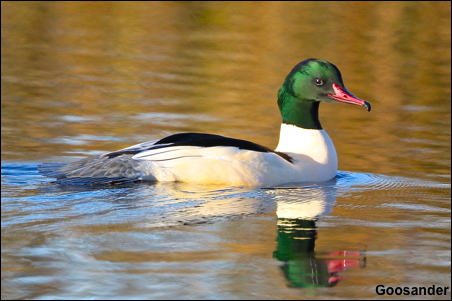 Its amazing what wildlife you can encounter whilst out walking the dog. Along our local canal last week I came across a pair of Goosanders. I had just about enough time to take the dogs home, grab my camera, and return to film the male before he took off. The light was perfect and his bottle-green head showed up magnificently in the winter sunshine. click here
Its amazing what wildlife you can encounter whilst out walking the dog. Along our local canal last week I came across a pair of Goosanders. I had just about enough time to take the dogs home, grab my camera, and return to film the male before he took off. The light was perfect and his bottle-green head showed up magnificently in the winter sunshine. click here
December 5, 2019 at 5:29 pm
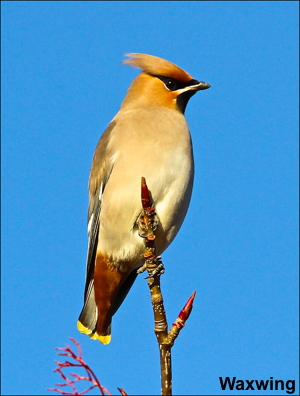
This weeks blog photo is of a Waxwing on top of a Rowan tree, in a Lancashire village, in the Ribble Valley. I found it on the 18th November when it was Lancashires first feeding Waxwing of winter. There are currently hundreds in Scotland and some in north-east England so by the month-end we could have our local Waxwings.
They have always been my favourite bird and you can see why if you browse this weeks gallery. click here
November 24, 2019 at 9:31 am
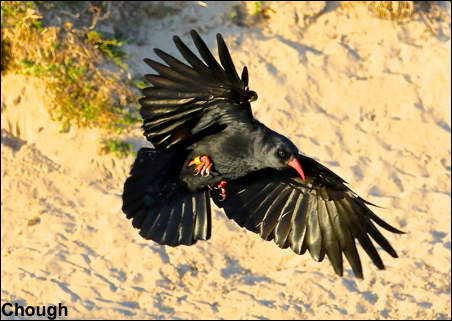 No visit to Islay is complete without time spent filming Chough. They are the rarest member of the Crow family and by far the most exciting to photograph, especially in flight.In fact all the photos shown in the gallery over the last four weeks were taken in just two days, in perfect weather, with exceptional subject matter. Where else would you wish to go to in Autumn? Click here
No visit to Islay is complete without time spent filming Chough. They are the rarest member of the Crow family and by far the most exciting to photograph, especially in flight.In fact all the photos shown in the gallery over the last four weeks were taken in just two days, in perfect weather, with exceptional subject matter. Where else would you wish to go to in Autumn? Click here
 At the beginning of the year my photographic targets for the year included hunting Long Eared Owl and young Kingfishers perched on a branch after fledging. Up to six hours a day were spent, under cover, in June and July to capture the Long Eared Owl and I was almost successful with the young Kingfishers. My dream of five young Kingfishers on the same branch was spoiled when two of them perched nearby so I had to make do with three on the branch and two elsewhere as shown in this weeks gallery. My work on Hen Harriers on Islay continued and after 43 years is now nearing completion!
At the beginning of the year my photographic targets for the year included hunting Long Eared Owl and young Kingfishers perched on a branch after fledging. Up to six hours a day were spent, under cover, in June and July to capture the Long Eared Owl and I was almost successful with the young Kingfishers. My dream of five young Kingfishers on the same branch was spoiled when two of them perched nearby so I had to make do with three on the branch and two elsewhere as shown in this weeks gallery. My work on Hen Harriers on Islay continued and after 43 years is now nearing completion!

 This week’s photo was taken through my video camera in Svalbard ten years ago. The Svalbard reindeer is smaller than the Lapland reindeer but its antlers are much more impressive. On my last ever visit to Svalbard, three years ago, I had the unique opportunity to photograph a female Polar Bear with three cubs. This has hardly ever been seen before and only myself and a fellow traveller were in the right position at the rear of the boat to obtain any photos.
This week’s photo was taken through my video camera in Svalbard ten years ago. The Svalbard reindeer is smaller than the Lapland reindeer but its antlers are much more impressive. On my last ever visit to Svalbard, three years ago, I had the unique opportunity to photograph a female Polar Bear with three cubs. This has hardly ever been seen before and only myself and a fellow traveller were in the right position at the rear of the boat to obtain any photos. The Kestrel might be our commonest bird of prey but you can never go out and plan to photograph one. This summer I spent some time watching a well-marked male as he looked for prey on the ground from some telegraph wires. I had to try to anticipate the split second he left the wires and more often than not failed to capture the action. However, with luck I did succeed occasionally as can be seen in this weeks blog photo. Some immature birds are shown in the gallery.
The Kestrel might be our commonest bird of prey but you can never go out and plan to photograph one. This summer I spent some time watching a well-marked male as he looked for prey on the ground from some telegraph wires. I had to try to anticipate the split second he left the wires and more often than not failed to capture the action. However, with luck I did succeed occasionally as can be seen in this weeks blog photo. Some immature birds are shown in the gallery.  Its amazing what wildlife you can encounter whilst out walking the dog. Along our local canal last week I came across a pair of Goosanders. I had just about enough time to take the dogs home, grab my camera, and return to film the male before he took off. The light was perfect and his bottle-green head showed up magnificently in the winter sunshine.
Its amazing what wildlife you can encounter whilst out walking the dog. Along our local canal last week I came across a pair of Goosanders. I had just about enough time to take the dogs home, grab my camera, and return to film the male before he took off. The light was perfect and his bottle-green head showed up magnificently in the winter sunshine. 
 No visit to Islay is complete without time spent filming Chough. They are the rarest member of the Crow family and by far the most exciting to photograph, especially in flight.In fact all the photos shown in the gallery over the last four weeks were taken in just two days, in perfect weather, with exceptional subject matter. Where else would you wish to go to in Autumn?
No visit to Islay is complete without time spent filming Chough. They are the rarest member of the Crow family and by far the most exciting to photograph, especially in flight.In fact all the photos shown in the gallery over the last four weeks were taken in just two days, in perfect weather, with exceptional subject matter. Where else would you wish to go to in Autumn?